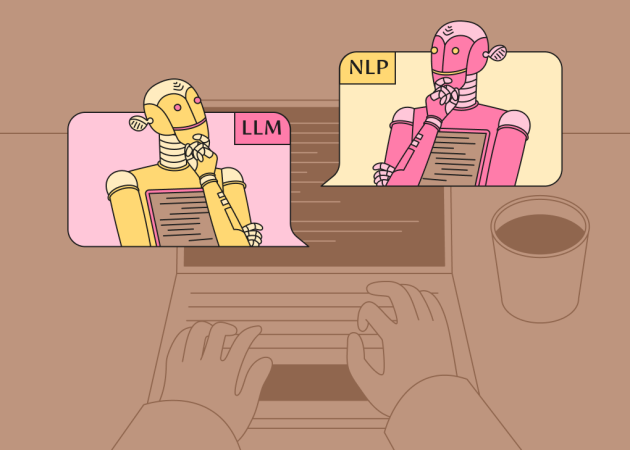
What WordPress Will Be in the Future
Contents
Contents
WordPress has come far since its initial appearance in 2003. Thanks to constant updates and a strong community, it’s now the most popular CMS in the digital world. Here, at Beetroot, we believe that WordPress solutions will continue to evolve. Albeit making forecasts is a challenging task, we’ll consult our trusted magiс 8-ball and toss a touch of gut feeling into the mix… along with a healthy dose of indicator analysis.
JavaScript
Following WP’s recent JavaScript-fuelled project Calypso, the online community relentlessly discussed whether JavaScript will substitute PHP for good. The discussion rolled even faster after Matt Mullenweg urged developers to “learn JavaScript, deeply”. Alongside Gregory Cornelius claiming that this will be a natural move, we see several compelling reasons to welcome this change.
Firstly, front-end editing on JavaScript will become easier for non-tech users. Secondly, developers’ productivity will most likely go through the roof. As Mark Jaquith mentions, WordPress is, above all, a professional technology for professional teams. Implementation of JavaScript will decrease the time of waiting for server response, which is a serious productivity boost.
Thanks to constant updates and a strong community, WordPress now the most popular CMS in the digital world.
Yet, the most imposing reason might stand behind the opportunity to beat the competition. Adding JavaScript to its arsenal will lift WordPress.com in the rankings of website builders even further. It should become possible thanks to faster speed, huge JavaScript libraries, better security and mobile responsiveness.
Better UI
Lately, users with no coding knowledge began tackling the nuts-and-bolts of Internet technologies. They started to run blogs and now master drag-and-drop editors to create websites. It’s without doubt that the list of things that are possible to do without a tech background has expanded quickly. Even technology itself steps away from its complicated scientific image and seeks to be more user-friendly.
Following Ghost’s and Medium’s shift towards minimalistic UI, Mike Little promised to make WP’s interface more user friendly. The new WP interface will be based on scrolling over clicking, as it’s more intuitive and mobile-friendly. 3D buttons and shadows will also be archived into the “past”, giving way to flat, minimalistic designs. Finally, developers might add background videos or dynamic visuals to make an interface even more convenient and mobile-oriented.
Generalization
WordPress grew out of it’s “just-a-blogging-platform” pants a long time ago. Now it is an almost universal tool for building websites, forums, and e-commerce sites.

Yet, some argue that diffusing company’s efforts is not the best strategy in the competition against specialized CMSs like Ghost. Fair enough, but WordPress seems to have enough capacity to support top-tier work in several areas. In fact, this ability only proves its superiority. Bearing this in mind, it’s likely that WP will continue adding small features in different directions, rather than concentrating entirely on developing one area.
Plugins and Themes
Developed by talented pros, plugins and themes are WP’s visiting cards. As time unfolds, premium plugins become stronger players on the WordPress playing field and we believe this tendency will gear up in the future. Even now, WP’s premium plugin Visual Composer is downloaded 27,000 times. It surpasses the number of downloads of any premium theme.
Another plugin-related prediction is the development of internationalized plugins. WordPress already acknowledges that the non-English speaking community is growing fast in the digital world. Bearing this in mind, WP plans to launch a translation project to adjust its most popular plugins to the changing audience’s needs.
REST API
The list of forecasts wouldn’t be complete without REST API, of which the potential, bound to WordPress, became obvious in 2012. Three years later, WP developers started adding some of the REST API components to the core. Why is this so important and why does everyone keep wondering whether WP REST API is the future?

To set this clear, let’s assume that you run an entertainment company and you hire a WordPress team to craft your website. Having traditional WP functionality, they would end up with a neat page, where you can publish up and coming events and share your content. With WP REST API, though, they would be able to craft an application with online booking and push notifications.
Easily put, REST API will help WordPress “build bridges” with other platforms and integrate them, disregarding their programming language. This is a huge step for the WP community and its reign is greatly anticipated.
Being true admirers of WordPress we believe that there is a brave new world waiting for it. And all the arrows and signals we’ve managed to spot only strengthen our beliefs.
Subscribe to blog updates
Get the best new articles in your inbox. Get the lastest content first.
Recent articles from our magazine
Contact Us
Find out how we can help extend your tech team for sustainable growth.







